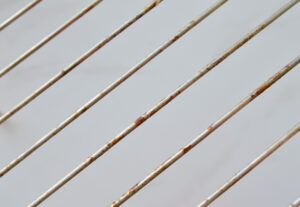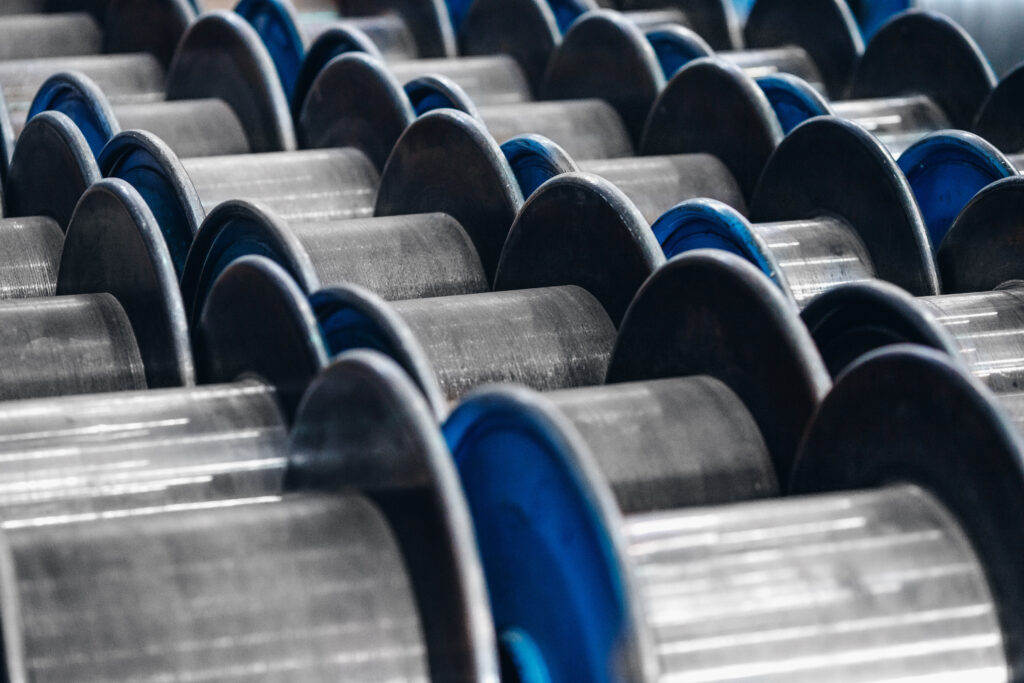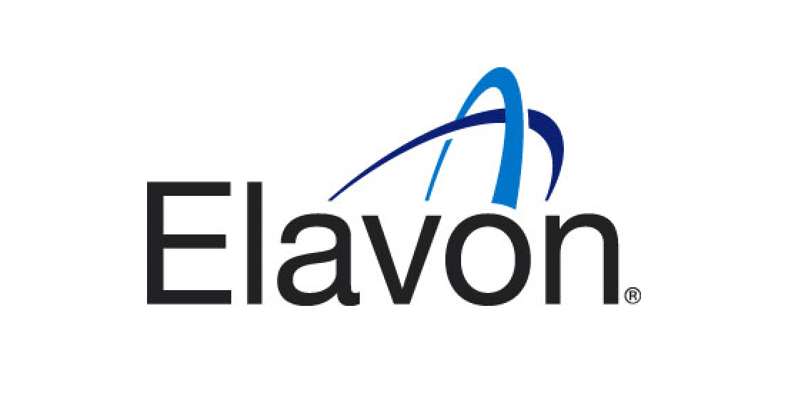Ni80 and Ni90 wires, also known as Nickel Chrome wires, have carved a niche in the world of electrical conductivity and heat resistance. These terms refer to the composition of the wire, specifically to the nickel percentage. These wires possess unique properties that make them suitable for a variety of industries beyond their elemental breakdown.
As industries strive for optimal performance, the battle between Ni80 and Ni90 continues, from heating elements in household appliances to specialised applications in manufacturing. Take a dive into the nuances of these two materials, learning about their advantages, disadvantages, and use cases.
Introduction to Nickel Chrome Wires
Before we delve into the differences and advantages of Ni80 and Ni90, it’s essential to understand the basic concept behind these terms. Both Ni80 and Ni90 refer to the composition of Nickel Chrome wires. The numbers denote the percentage of nickel present in the wire. So, Ni80 has 80% nickel, while Ni90 boasts a slightly higher content at 90%.
Why Nickel Composition Matters
Nickel’s prominence in wire composition stems from its diverse and favorable properties. Boasting commendable electrical conductivity, it is also lauded for its resistance to corrosion and ability to withstand high temperatures without significant oxidation. Its malleability and ductility facilitate ease in manufacturing processes, enabling the metal to be drawn into specific dimensions effortlessly. Additionally, when alloyed with other metals, nickel contributes to enhanced resistance and heating properties, showcasing its adaptability and utility in various industrial applications.
What Ni80 and Ni90 Wire is Used For
Ni80, commonly referred to as Nickel Chrome 80/20 wire, has secured a prominent position in a range of industries owing to its specific attributes. Its optimal resistivity, coupled with rapid heat-up capabilities, makes it a top choice for heating elements used in household appliances like toasters, electric stoves, and ovens. Additionally, due to its durability and resistance to oxidation at elevated temperatures, Ni80 is frequently used in laboratory settings for heaters and specialised equipment. The wire’s inherent stability in high-temperature conditions, combined with its corrosion resistance, also makes it an asset in manufacturing sectors where controlled heating processes are paramount.
Ni90 or Nickel Chrome 90/10 wire, with its higher nickel content, brings some nuanced differences in its applications compared to Ni80. While it also plays a role in heating elements, its quicker heat generation properties make it favorable for scenarios requiring rapid temperature elevation. This includes specific industrial heaters and specialised applications where swift heat generation is of the essence. Moreover, Ni90’s properties make it useful in certain electronic components and sensors that benefit from its reduced resistivity. However, given its slightly decreased lifespan in rigorous conditions, its industrial applications are often more niche and tailored to particular requirements.
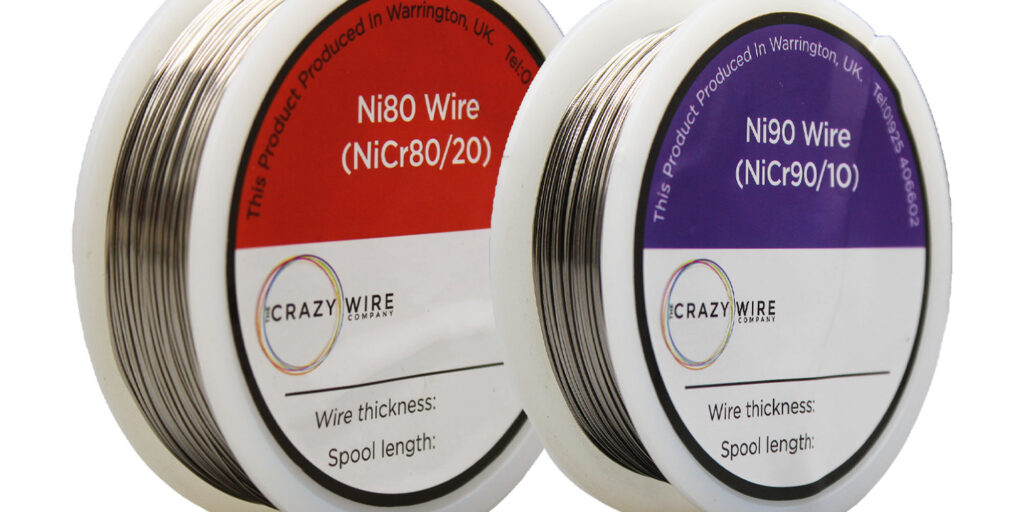
The Verdict: Ni80 vs Ni90
When examining the utility and performance of Ni80 and Ni90 wires, the preference largely boils down to the specific requirements of the application at hand.
Ni80, with its balanced composition, offers a reliable and durable option, particularly well-suited for consistent heating in appliances and equipment. Its longer lifespan in regular conditions makes it a trustworthy choice for applications that demand consistent performance over extended periods.
On the other hand, Ni90, with its enhanced nickel content, provides quicker heat generation, making it ideal for applications requiring rapid temperature changes or immediate heat responses. However, its slightly reduced durability means that it might be better suited for specialised, short-term applications rather than continuous, long-term use.
Pros and Cons of Ni80
Advantages:
Versatility: Due to its balanced nickel content, Ni80 offers an ideal resistivity suitable for a wide range of applications, especially in heating elements for appliances.
Heat Properties: Ni80 heats up relatively quickly, making it efficient for applications requiring a rapid heat response.
Durability: Its composition lends Ni80 a relatively longer lifespan under typical conditions, ensuring it doesn’t need replacements frequently in consistent performance applications.
Oxidation Resistance: Ni80’s resistance to oxidation at high temperatures makes it ideal for use in settings where consistent, elevated temperatures are prevalent.
Corrosion Resistance: The alloy’s nature gives it a strong resistance to corrosive environments, ensuring its longevity in various conditions.
Neutral Impact: Ni80 doesn’t significantly interfere with or alter the properties of materials it interacts with, making it suitable for diverse applications.
Disadvantages:
Heat Retention: While Ni80 heats up quickly, it can retain heat for longer periods, which might not be ideal for applications requiring rapid cooling.
Nickel Sensitivity: The 80% nickel content might not be suitable for applications where nickel sensitivity or allergies are a concern.
Not the Quickest: While it does heat up swiftly, there are other compositions, like Ni90, that can offer even quicker heating, making Ni80 a middle-ground option in terms of heating speed.
Pros and Cons of Ni90
Advantages:
Rapid Heat-Up: Thanks to its higher nickel content, Ni90 has the ability to heat up even more swiftly than Ni80, making it efficient for applications that prioritise instantaneous heat generation.
Reduced Resistivity: The 90% nickel content offers Ni90 a lower resistance compared to other alloys, which can be beneficial for certain electrical and heating applications.
Potential Enhanced Interactions: Some industries believe that Ni90 can interact in a more favorable manner with certain materials or in specific processes, although this remains subjective.
Optimal for Short, Intense Uses: Due to its quick heating properties, Ni90 can be ideal for scenarios requiring short bursts of intense heat.
Disadvantages:
Durability Concerns: The heightened nickel content can potentially reduce its overall lifespan, especially under constant high-temperature conditions. This might mean more frequent replacements or maintenance in some applications.
Heat Management: Rapid heating is a double-edged sword. Without proper management, Ni90 can run the risk of overheating or causing related issues in equipment or processes.
Increased Nickel Sensitivity: With 90% nickel content, Ni90 might pose challenges in settings where nickel sensitivities are prevalent.
Resource Intensive: Due to its specific composition, Ni90 might require more precise manufacturing processes, potentially driving up costs or resource requirements in certain scenarios.
Available Nichrome Wire Options:
| Ni80 | Ni80 | Ni90 | Ni90 | Ni60 | Ni60 |
| Diameter (mm) | AWG | Diameter (mm) | AWG | Diameter (mm) | AWG |
| 0.05 | 44 | ||||
| 0.06 | 42 | ||||
| 0.07 | 41 | ||||
| 0.08 | 40 | 0.08 | 40 | ||
| 0.09 | 39 | ||||
| 0.1 | 38 | 0.1 | 38 | ||
| 0.12 | 36 | ||||
| 0.125 | 36 | ||||
| 0.13 | 36 | 0.13 | 36 | ||
| 0.14 | 35 | ||||
| 0.15 | 35 | ||||
| 0.16 | 34 | ||||
| 0.17 | 34 | ||||
| 0.18 | 33 | ||||
| 0.2 | 32 | 0.2 | 32 | ||
| 0.21 | 32 | ||||
| 0.23 | 31 | ||||
| 0.25 | 30 | 0.25 | 30 | 0.25 | 30 |
| 0.27 | 29 | ||||
| 0.28 | 29 | ||||
| 0.29 | 29 | ||||
| 0.3 | 29 | 0.3 | 29 | ||
| 0.32 | 28 | 0.32 | 28 | 0.32 | 28 |
| 0.35 | 28 | ||||
| 0.37 | 27 | 0.37 | 27 | ||
| 0.38 | 27 | ||||
| 0.4 | 26 | 0.4 | 26 | 0.4 | 26 |
| 0.42 | 26 | ||||
| 0.45 | 25 | 0.44 | 25 | ||
| 0.5 | 24 | 0.5 | 24 | 0.5 | 24 |
| 0.54 | 23 | ||||
| 0.6 | 22 | 0.6 | 22 | ||
| 0.64 | 22 | 0.64 | 22 | ||
| 0.7 | 21 | 0.72 | 21 | ||
| 0.8 | 20 | 0.81 | 20 | 0.8 | 20 |
| 0.9 | 19 | 0.9 | 19 | 0.9 | 19 |
| 1 | 18 | ||||
| 1.15 | 17 |
Nickel Chrome wires, particularly Ni80 and Ni90, have proven to be standout performers in the intricate dance of metals and alloys. Because of their unique compositions and nickel ratios, they are able to provide specific properties that have become crucial to industries. There are distinctive advantages to both Ni80 and Ni90 when it comes to heat generation, temperature stability, or resistance to corrosive environments. Technologies and demands will likely increase the potential applications for these materials in the future. To make informed decisions in myriad applications, it is crucial to understand Ni80 and Ni90’s nuances and capabilities.
Although each has advantages and disadvantages, choosing between them depends on specific requirements and how the results are to be achieved. It is evident from both materials that nickel-based alloys are highly versatile and useful in modern industry.
Thank you for taking the time to read this guide. We hope that the information above helped you in the search for the right product for your project.
If you are interesting in learning more about wires, check out our blog on Everything You Need To Know About Wires or our other blog on Nichrome Wire.
- MULTIBUY SAVINGS – ORDER 5 FOR 20% OFF
- FREE UK Delivery For All Orders Over £25
- Immediate Express Dispatch From Stock
- Orders Fulfilled From Warrington, UK
- Tracked Delivery with Order Updates
- 30-Day Unused Returns Accepted

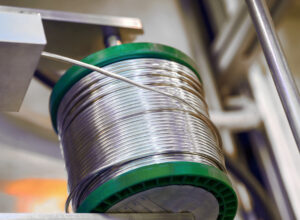
Nichrome Wire Safety: Top Tips for Working Safely
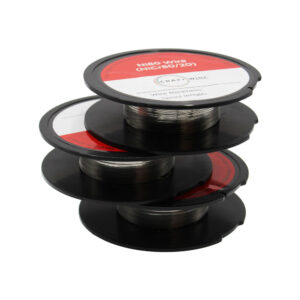
Best Wire for Electronics Projects
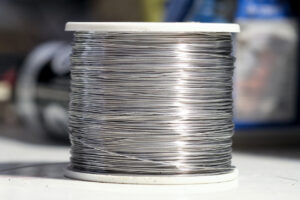
Is Ni80 Wire Suitable for DIY Heating Elements
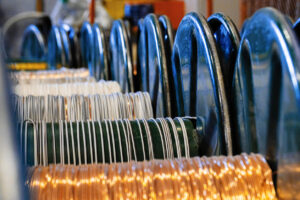
Wire Grades Explained
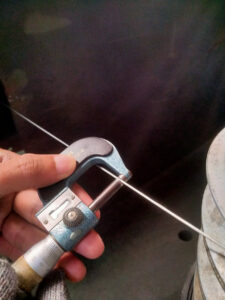
How Wire Diameter Affects Strength and Flexibility

How to Cut and Shape Wire for Custom Applications

Can Wire Be Used in 3D Printing?
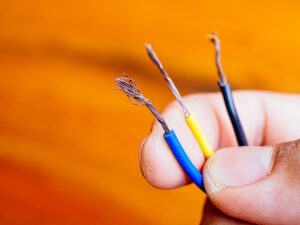
How Wire Composition Affects Conductivity
